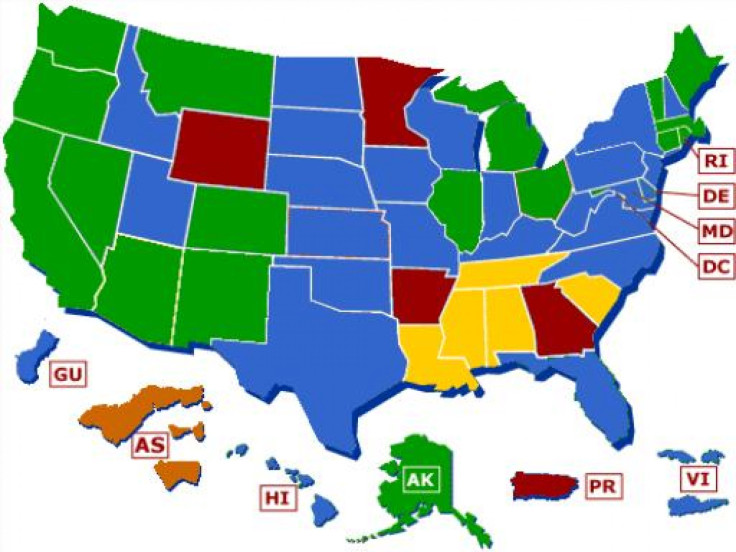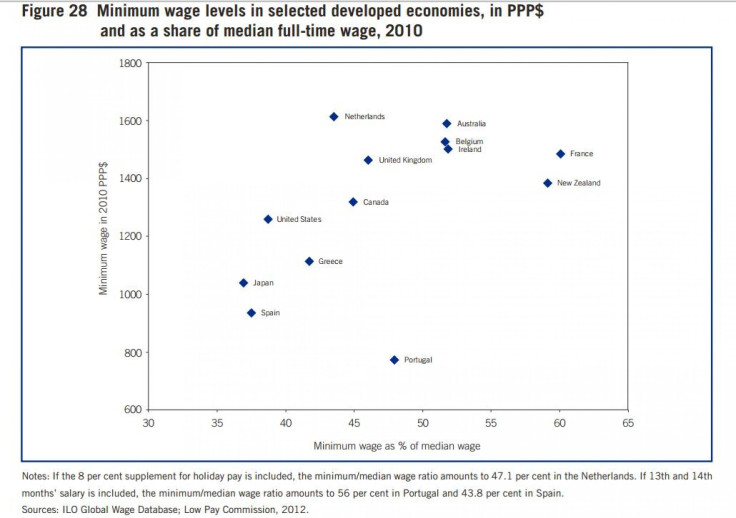No, Raising the Minimum Wage Will Not Lead To Massive Job Losses

Most Americans can probably say they aspire to earn far more than $9 an hour. But, in the wake of President Barack Obama’s proposal to boost the federal minimum wage from $7.25 to the still paltry $9, several Republican lawmakers are insisting that mandatory wage raises for those low-skilled workers could – paradoxically – increase poverty across the United States.
"We know our economy is stronger when we reward an honest day's work with honest wages," Obama said during his State of the Union speech Tuesday night. "But today, a full-time worker making the minimum wage earns $14,500 a year. Even with the tax relief we've put in place, a family with two kids that earns the minimum wage still lives below the poverty line. That's wrong."
The proposal was just one component of Obama’s economic-focused speech, where he called on creating “ladders of opportunities into the middle class” as a means of raising Americans out of poverty. The White House plan, which would raise the federal minimum wage by increments until 2015, predicts it would benefit more than 15 million workers. Still, at the end of the day those full-time workers would only be taking home $18,720, before taxes.

Raising the minimum wage and indexing it to inflation would be one step toward easing the burden on the working poor, according to the Obama administration. But top Republicans, such as House Budget Committee Chairman Paul Ryan, R-Wis., and Sen. Marco Rubio, R-Fla., have already clearly expressed their opposition to the plan, relying on the age-old argument that businesses will hire less if they are forced to pay more – even an extra $1.75 per hour.
History, however, indicates otherwise. While some studies, such as a 2010 report in the Review of Economics and Statistics, found “no detectable employment losses from the kind of minimum wage increases we have seen in the United States,” those wage increases still benefit those who are currently employed. For instance, the Center for American Progress reports a small pay bump could ultimately pay for itself by boosting worker productivity and reducing turnover and vacancies.
“Economists have evaluated the impact of minimum wage increases practically since the inception of the wage floor in the 1930s. At this point, it is fair to say that the debate over the purported job-loss effect is a debate over whether this effect is slightly below zero, or at zero,” reported the Economic Policy Institute back in 1999, when Congress was debating raising the minimum wage to $6.15 an hour.

Another widely cited study by economists David Card and Alan Krueger found that a higher minimum wage can boost job creation for low-skilled professions, while the Organization for Economic Co-operation and Development recently reported an increase could help reduce, however minutely, the rate of income inequality in the U.S. by pushing up the incomes of the poor.
That could even fortify the economy, according to the Federal Reserve Bank of Chicago, which reports that, for every $1 increase in the minimum wage, spending by households with minimum wage workers increased by $700 per quarter.
The state of Washington has the highest minimum wage in the country at $9.19 an hour. Nineteen states have a set wage higher than the federal level, while four have set it below the $7.25 federal standard. Georgia and Wyoming currently have the lowest minimum wages, at $5.15 per hour.
The United States has one of the lowest minimum wages among developed countries, according to the International Labor Organization’s most recent Global Wage Report. With a minimum wage at below 40 percent of the average national salary, only Japan and Spain pay their lowest-rung workers less.
© Copyright IBTimes 2024. All rights reserved.











